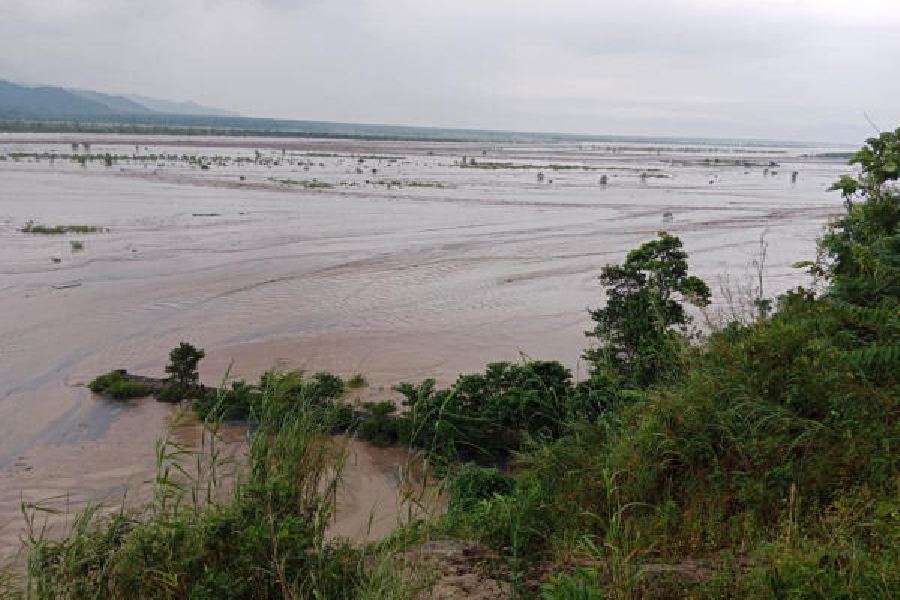Residents of Chamakdangi and Laltongbusty, two hamlets on the right bank of the Teesta on the outskirts of Jalpaiguri, have been spending sleepless nights since October 4, when the river wreaked havoc in Sikkim and parts of Kalimpong.
The swollen Teesta swept away almost half of the 70-metre-long spur put in the river to protect the villages that are also on the fringes of the Mahananda Wildlife Sanctuary.
A spur or a groyne is a structure built with stones in a projected form from the bank into the river to prevent it from eroding or flooding the bank.
Both these villages are under Rajganj block of Jalpaiguri district, some 25km from Siliguri, near Sevoke.
“There was a 70-metre-long spur built for the protection of the villages. But after last week's disaster, we found that almost half of it has washed away. As water is released from the hydropower projects which are in the upstream, the spur is getting more damaged with every passing day. The river, still swollen, is inching closer to the bank. If it continues, both these villages will get flooded,” said Champay Mukhia, a resident of Chamakdangi.
Chamakdangi has some 70 houses. Laltongbusty has 30-odd houses. In all, around 450 persons live in these villages.
Residents in both are dependent on agriculture and dairy farming.
Last Thursday, north Bengal development minister Udayan Guha visited the villages with officials of the state irrigation department.
The residents said they told panchayat members about the situation.
“We requested them to shift us to safer places as the river can flood our areas any time. After the disaster in Sikkim, we can’t sleep at night. We just keep our eyes glued to the advancing river,” said a villager.
Gautam Goswami, a member of Siliguri Jalpaiguri Development Authority, who was with the minister during his visit, said that some families whose houses were closer to the riverbank were temporarily shifted to the Seventh Mile forest village.
“The minister has asked the irrigation department to make repairs, but that can only begin once the Teesta's water level recedes,” said Goswami.











